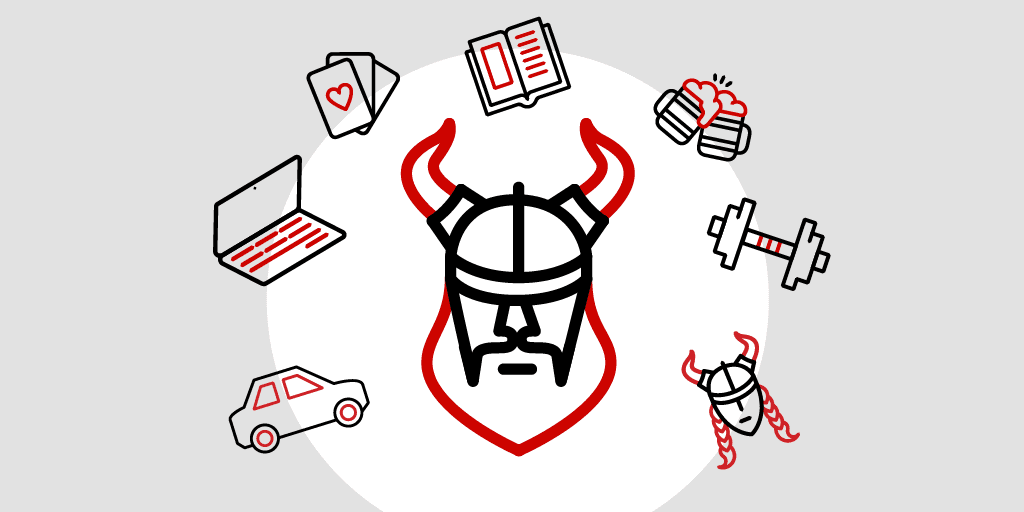Reading a book to your favorite Spotify playlist, a phone call to a friend while driving, a quick Instagram check as a reward for an activity, or perhaps breakfast with Facebook? Let he who has never been a Multitasker cast the first stone! Can multitasking be learned? Or is it that Homo Multitaskus has no right to survive? One thing is certain – scientists don't give him much of a chance.
The modern generation, once dubbed the "multitasking generation" by Claudia Walls in TIME magazine, seems to believe in efficiently performing many complex tasks simultaneously. For many people, multitasking is even a source of pride. How often do we hear boasts that someone is doing ten things at once, is in several places at the same time, and has eyes in the back of their head... The question is – is it something to be proud of?
I don't want to, but I have to
Access to mobile devices and changing work conditions, which demand immediate reactions from us, somewhat force multitasking. Let's take a closer look at, for example, the modern job market. The word "multitasking" has probably firmly established itself in job advertisements on popular portals for employees and employers. And although the number of multitasking proponents is decreasing year by year, there are some positive aspects to having and using this skill. The ability to quickly switch from one task to another and work on different things simultaneously increases the adaptability of the human mind. Multitasking also allows for flexibility and often saves time, which probably no one can complain about having too much of today.
Fear of missing out
Technology is bad, the employer is bad... but what about us? In an article published in the Harvard Business Review (2007), Linda Stone aptly describes the condition of modern man, who always wants to be at the center of events and fears that something might escape him. According to her, for this reason, we work with the sounds from the TV on, or check Facebook updates while watching another episode of our favorite series on Netflix. The problem is that this does not positively affect the quality of the work performed.
"Multitasking is just an opportunity to screw up many things at once"
The fact that multitasking negatively affects our organism is confirmed by research from all over the world. Experiments conducted in this area indicate that even intensive brain training is useless – it's impossible to perform several attention-demanding tasks well. At any moment, we can send SMS messages to a friend, jump between windows open in Google Chrome, and listen to the TV at the same time. However, when we reach a moment of quiet, where nothing requires our attention (P.S. do such moments even happen?!), we may not be able to avoid the distraction of our favorite apps and social media. Do you know that feeling when you're watching a series, hear a notification sound, and instinctively reach for your smartphone, only to realize a moment later that you have no idea what the episode is about? We know it too!
A study conducted by the Institute of Psychiatry on a group of people, and covered by BBC News, showed that technology addiction, and consequently – increasing multitasking, contributes to so-called "infomania". Among the study participants, there was a 10-point drop in their IQ. The study also noted that the aforementioned drop in IQ related to "infomania" is more than twice as large as in studies on the effects of marijuana use on intelligence.
Multitasking also negatively affects the quality and efficiency of work, as it causes the release of stress hormones – adrenaline and cortisol. It also causes damage to short-term memory. Do you ever happen to be checking Instagram while inviting a friend to join us, and consequently forgetting to check if the mentioned friend's PESEL number is correct? Exactly! We don't remember because our attention is too scattered, and we are not very focused.
If you think there's no hope for you anymore...
You're wrong! There are ways to combat "distractions" and increase your productivity without the help of multitasking. First and foremost, try to summarize and use notes. Also, don't fall into the trap of constantly being on your phone. Well, unless you're constantly expanding your crew with V2V – that's some excuse. 😉 Limit your time on sites other than those relevant at the moment. Although it may seem like just 5 minutes, very few people can actually accurately estimate the passage of time. In simpler terms, you spend more time scrolling through LinkedIn and checking for news on our blog than you think. You can also use the Pomodoro Technique, which involves dividing your time into 25-minute intervals. During this time, concentrate on only one task. Only after 25 minutes have passed, start the next one, preceded by a short break.
As you can see, multitasking may be spectacular at times, but it's rarely effective. Therefore, it's worth working on your viking spirit and your zeal for doing impossible things, in line with the principle – quality matters, not quantity.
By the way – if you have any interesting stories where your multitasker nature got you into trouble or big difficulties, be sure to let us know!











